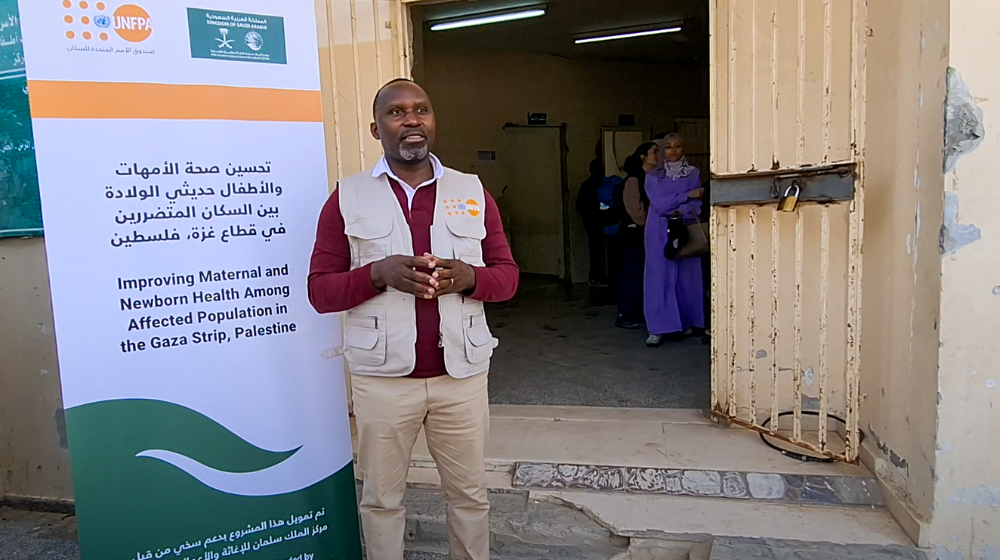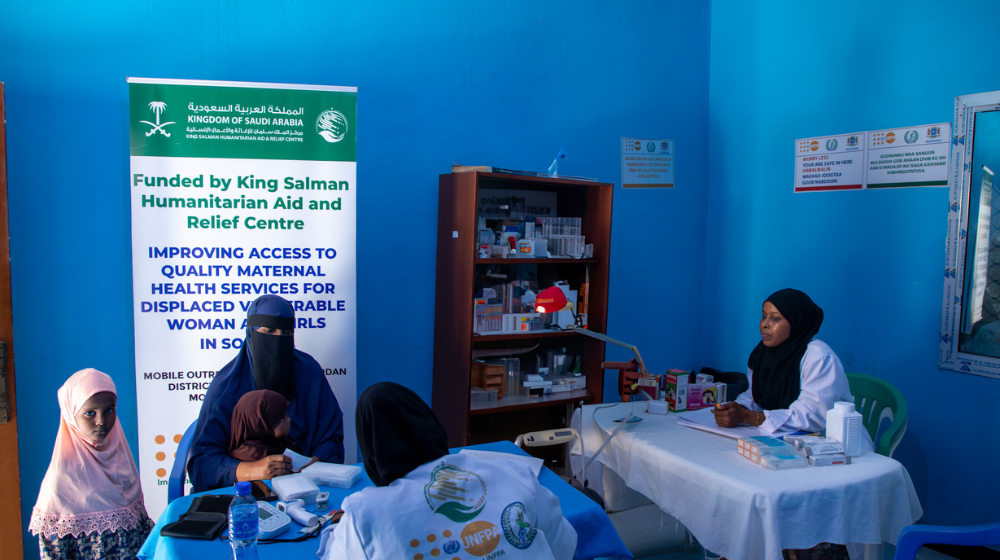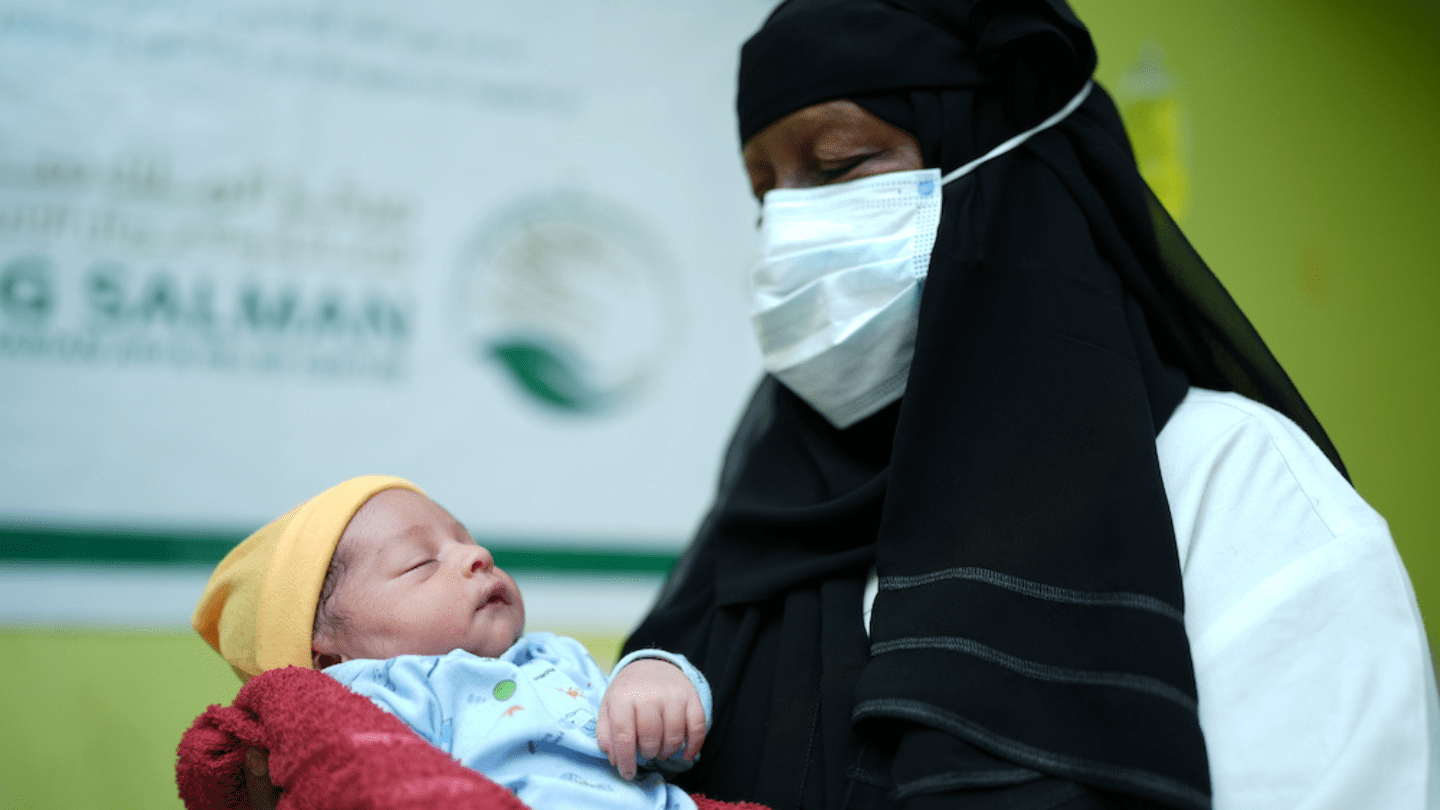“I felt that I was taking my last breath and would never get to hold my newborn,” says Nesma* from Marib Governorate, Yemen.
Nesma experienced life-threatening complications during her pregnancy, forcing her husband to sell his sheep – their only means of income – and hire a vehicle to take her to a hospital in the city. There was no health facility close to their home.
Fate intervened when they passed the Jabal Murad Hospital, supported by UNFPA and funded by the Kingdom of Saudi Arabia through the King Salman Humanitarian Aid and Relief Centre (KSrelief). Nesma’s husband rushed her inside, praying that staff would be able to save his wife and their child.
The maternity unit at the hospital was fully equipped with a trained medical team that was able to immediately assist Nesma and help her to give birth safely.
“The smile on Nesma’s face when she embraced her baby made my day,” said the midwife who assisted her. “We work to see such smiles.”
A price too high
Nesma's story is just one example in a larger, starker reality. For countless women like her, the odds are overwhelmingly against surviving pregnancy and childbirth. A staggering two-thirds of maternal deaths occur in countries affected by conflict or characterized as fragile, where women face a risk of death during pregnancy or childbirth that is five times greater than elsewhere. That’s around 500 women losing their lives every single day. When a mother dies in pregnancy or childbirth, her baby’s life is also endangered. Too often, these deaths could be prevented with access to quality care.
Nesma was fortunate. The partnership between UNFPA and KSrelief, who has generously contributed over $11 million to UNFPA’s life-saving interventions in Yemen over the last decade, made all the difference. That funding ensured she received the skilled maternity care that saved her life.
Giving birth under bombardment
Women fleeing war may have to give birth on the run, without even the most basic items needed for a clean delivery. Attacks on healthcare are also escalating, destroying facilities and displacing workers.
The healthcare system has been decimated in Gaza. More than 80 percent of health facilities have been damaged or destroyed and there are only five facilities still providing maternal and newborn health services that remain partially functional – all are struggling with an acute shortage of critical medicines and supplies. One in three pregnancies are now high-risk and two in 10 newborns are born preterm or underweight, requiring specialized care that is largely unavailable. Hadeel Abed, 23, one of an estimated 4,000 women who give birth every month in Gaza, described her pregnancy as a struggle; a battle with illness, fatigue and malnutrition. “Giving birth under these conditions is not feasible,” she added.

Despite active hostilities, on-going forced displacement orders, and a blockade on aid, UNFPA and partners continue to provide life-saving services for women and girls across the Gaza Strip. This partnership includes rehabilitating and equipping obstetric and neonatal units at two hospitals and one primary healthcare clinic, as well as training health providers in safe childbirth and newborn care, made possible through a $1.4 million contribution from the Kingdom of Saudi Arabia through KSrelief.
A convergence of crises
Worsening drought in Somalia is compounding challenges for communities already weakened by hardship, hunger, and ongoing conflict. Close to 4 million people are internally displaced, many living in makeshift shelters in overcrowded camps with little or no access to basic services.
Maano Abdi Ali and her family live in a displacement camp in Balanbal, in the heart of drought-stricken southwest Somalia. She has always given birth alone, but during an outreach session was encouraged to attend antenatal care sessions at the Kumis health centre, established by UNFPA with funding from the Kingdom of Saudi Arabia through the King Salman Humanitarian Aid and Relief Centre (KSrelief). When the time came, she gave birth at the centre, with skilled medical professionals providing her with a level of care and attention she had never experienced before. She described her experience as "a relief and source of pride," an emotional testament to the impact of accessible healthcare. The centre is one of two in Bay Region, out of a total of 13 across Somalia, funded by KSrelief that ensure women can access comprehensive maternity services, including emergency obstetric care.

A right to skilled healthcare
Global funding cuts are casting a long shadow over health care for pregnant women, and could put millions more women at risk, including 2 million pregnant women who will need humanitarian assistance in the Arab States region in 2025.
UNFPA is deeply grateful to the support of KSrelief and their continued investments to strengthen maternal and newborn health care in the region, ensuring every mother and baby have a chance to survive and thrive.
*Name has been changed for privacy and protection.


